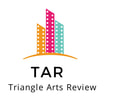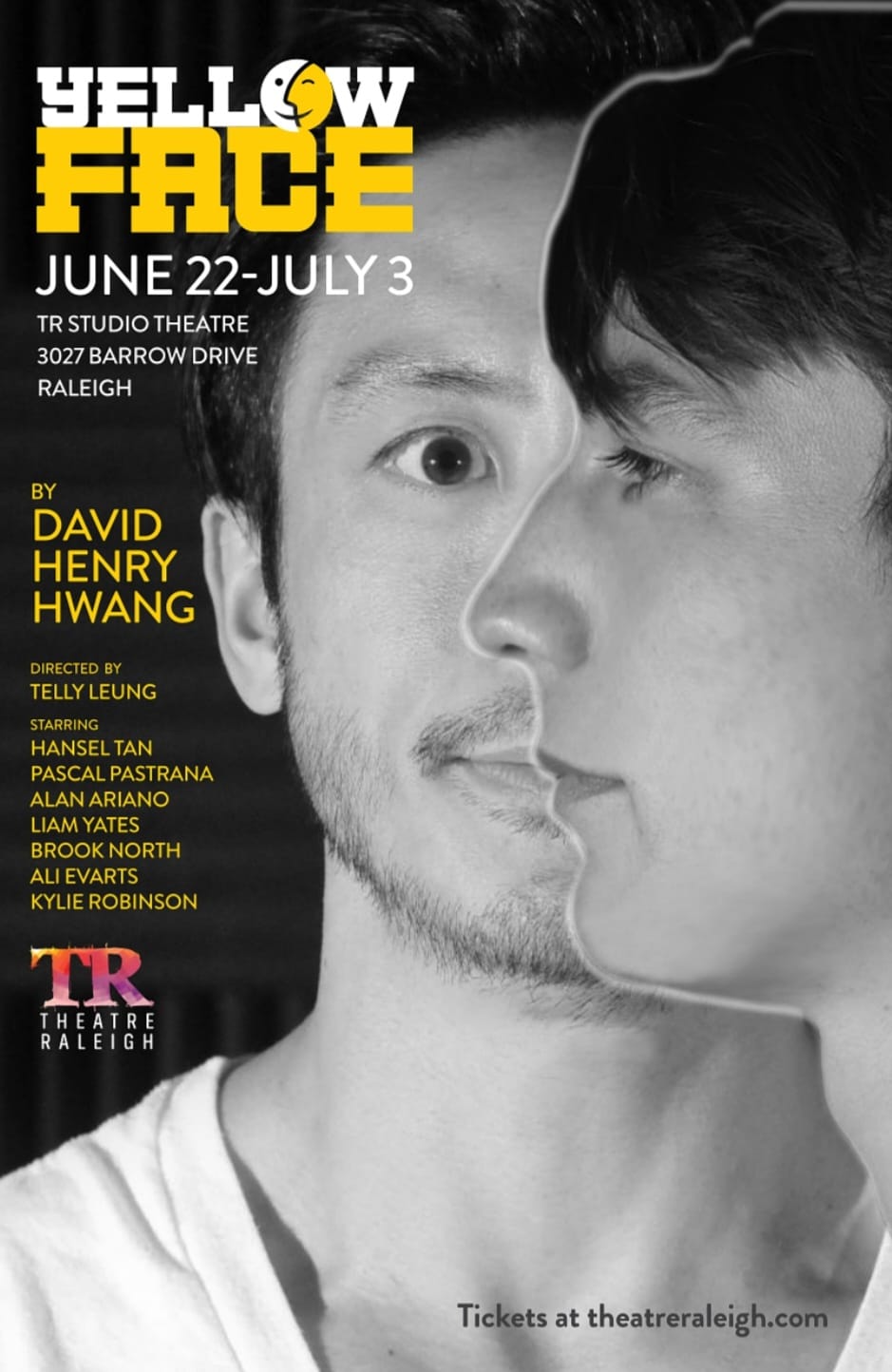|
Often, plays get labeled as “ahead of their time,” and that’s certainly a fitting description for David Henry Hwang’s Yellow Face, onstage now at Theatre Raleigh under the direction of Telly Leung. The semi-autobiographical piece, which first premiered in 2007, meshes fact and fantasy as it details the challenges and hard decisions the playwright (Hansel Tan) must make in his career and in his quest to understand his personal and racial identity.
True to life, the Hwang in the play, cleverly dubbed DHH, goes to bat for the Actors’ Equity Association when a non-minority is cast in a minority role. Where the play veers from reality, however, is when Hwang himself accidentally casts a non-minority actor, Marcus (Pascal Pastrana) as an Asian character in his next play. As DHH grapples with his mistake, he’s also forced to tackle some tough questions about race, ethnicity, identity, and the many ways in which they intertwine, as well as the conflations and contradictions that sometimes exist within these realms. Perhaps the best summary of the satirical drama that unfolds is when he exclaims, “So long as I help Marcus pass as an Asian, I can still fire him for being white.” Parody and sarcasm reign supreme throughout the fast-moving production. A lively cast darts in and out of multiple roles without missing a beat. Ali Evarts is particularly funny as actress Jane Krakowski, a union rep, and many others, while Kylie Robinson adds depth to her portrayal of Leah Anne, Hwang’s former love interest. Liam Yates also stands out in his role as a reporter-not-to-be-named who plays a pivotal role in the script’s jarring ending. And, while there are plenty of funny moments, they can’t compare to the brave and thought-provoking questions posed by the story’s more tender touches. And, speaking of tender, Alan Ariano is absolutely heartwarming as Hwang’s father. He’s a typical dad, one who loves his son dearly yet struggles to understand him, and Ariano's palpable chemistry with Tan only serves to deepen the strength of their bond. In fact, in many ways, the story is as much about generational divides as it is about race and identity. The script is packed with smart subtext and dense dialogue, which means there’s a lot to take in. However, the non-threatening tone promotes education and understanding, which broadens its reach and makes it all the more powerful. And, while some themes may seem a bit “untouchable” or “not-to-be-talked-about” to modern audiences, they are what makes this story so engaging, so important, and so perfect, if not “safe,” for todays’ time. Ultimately, all matters of race aside, this is a story about a father, a son, and the identities and visions they’ve created for themselves. And, it’s about what happens when that son comes to understand and appreciate the beautiful innocence of his father’s faith in a color blind society—not one where humans are blind to the issues POC face, but one where those issues don’t exist at all. It’s a future that seems all-too far off, but Hwang’s script and Leung’s no-holds-barred direction make you believe that maybe, just maybe, it’s possible.
0 Comments
|
TAR
We love the arts. We write about them. Founded 2018. Categories
All
Archives
January 2024
|


 RSS Feed
RSS Feed